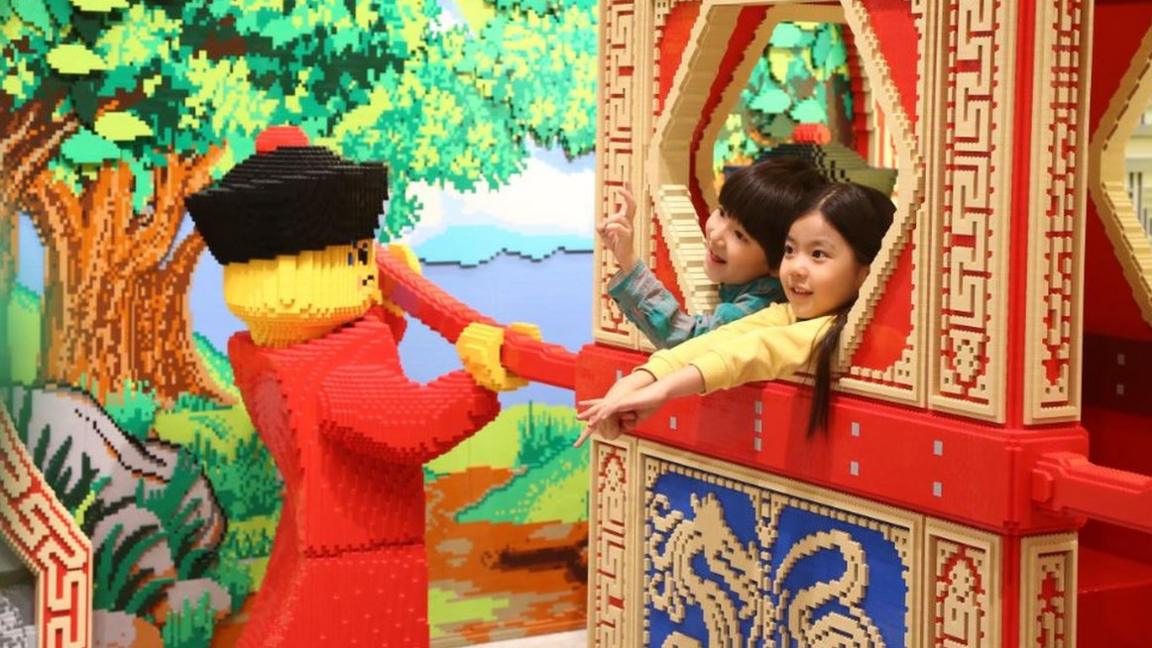The soft toys parents hope connect kids to their faith
- Published
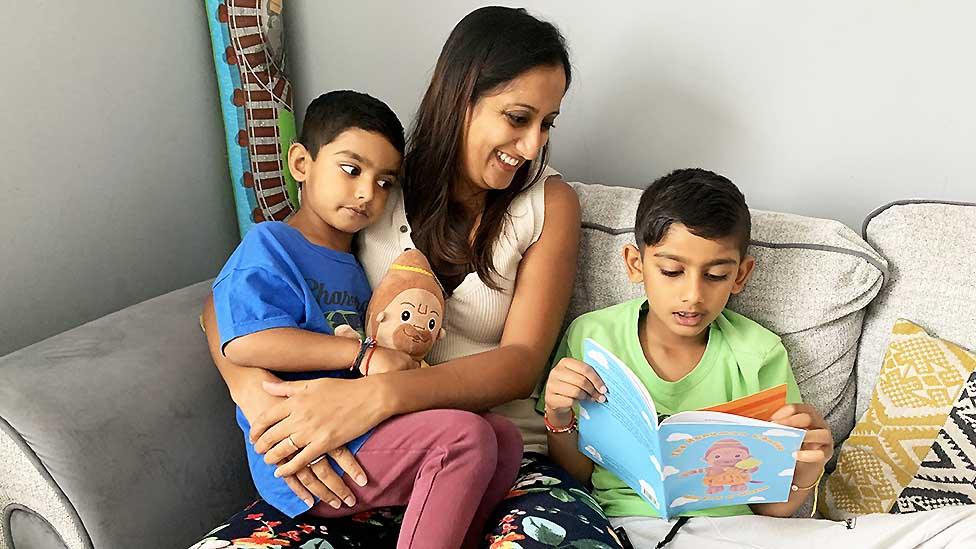
Manisha Varsani says the Hanuman soft toy helps her sons Jayden and Khayan connect with their Hindu faith and culture
Could a cuddly deity be a powerful way to pass down faith and culture to very young children?
Over the last few years a handful of small UK and US businesses have popped-up selling religious soft toys aimed at parents of children aged under 10.
Hindu-origin parents are the business brains behind many of the brands, hoping to maximise sales in the run up to Diwali, the festival of lights which is on 4 November this year.
Three-year-old Jayden often sleeps with his soft toy of the Hindu god, Hanuman, who, at the push of a button sings the popular Hindu hymn the "Hanuman Chalisa".
His mum, Manisha Varsani, says it has helped both her sons learn, recognise and form a meaningful connection with a Hindu divine form she grew up with, watching her mother worshipping,
"I think it's quite nice, that when they are going to bed they're listening to this prayer… it calms them down before they sleep but it also helps pass on that little bit of culture and faith," she says.
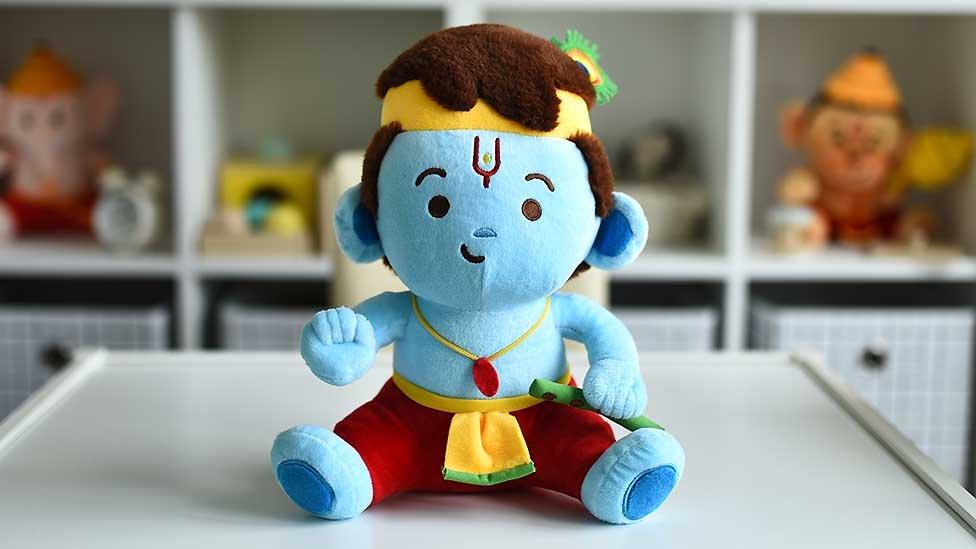
Modi Toys have sold thousands of cuddly toys of Hindu gods that sing mantras
"I think we're losing it with our generation of parents, so when it gets to my boys' generation, it's all going to disappear."
A number of small companies have popped-up and started selling soft toys of Hindu gods in recent years, mostly online.
Modi Toys, in the US, has sold over 40,000 of its products globally - including cuddly Krishnas, Ganeshas and Hanumans - since opening for business in 2018.
Meanwhile, Plush India, based in Leeds, sells around 100 of its Ganesha and Hanuman soft toys, each month.
Jayden's singing Hanuman soft toy is from new brand, Plush Legion, that extends its religious musical soft toy range to all the major faiths.
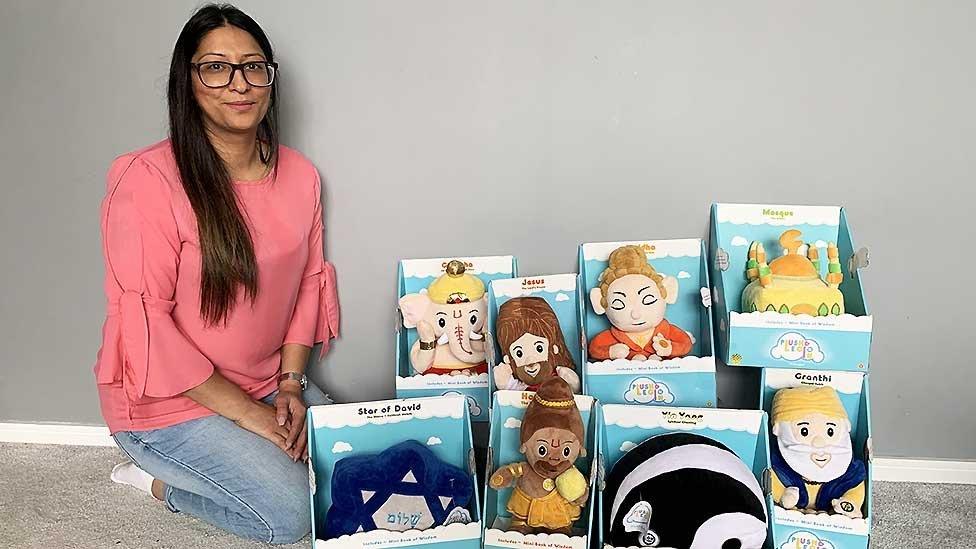
Sheena Parma founder of Plush Legion and some of her firm's musical cuddly faith toys
In addition to soft toy singing Hindu deities, its products include a cuddly Jesus that sings the Lord's Prayer, a fluffy Star of David that plays the Shema, and a soft toy mosque with an Islamic call to prayer.
Company founder, Sheena Parmar, came up with the idea in 2016, soon after becoming a mum herself,
"I grew up in a culturally diverse part of Watford. I am a Hindu but I went to church and many of my friends were Muslim… I just really enjoyed learning about other religions growing up and I didn't realise how much that would be awakened in me after I had my child."
But, will an approach to passing down religious tradition that's proving popular among Hindu parents work across other faiths?
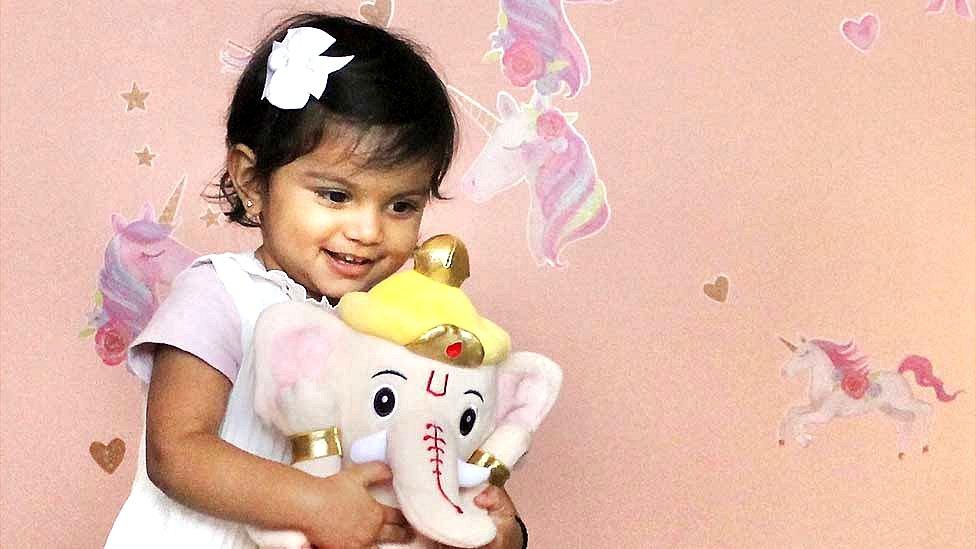
Plush Legion’s soft toy of the elephant-headed Hindu god Ganesha
"I've obviously done a lot of research to ensure I respect every single faith as much as I can in how I've designed the products," says Ms Parmar.
"I don't want to offend anyone but I guess this next year will show me. I personally think our Christian toy would make a great baptism gift."
Marcela Jadeja-Soto grew up as a Christian in Costa Rica, and now lives in north-west London with her husband and two young boys.
While she initially loved the idea of a cuddly Jesus to comfort her children at night and share Bible stories with, she feels conflicted by the idea of owning one,
"We shouldn't really have images of God in the way that we interpret the Bible and as a Christian I feel that God is not actually a toy… so the idea of seeing Jesus alongside Peppa Pig in the corner of my living room makes me feel a bit uncomfortable."
But Barbara Nelken, who is Jewish, says she was quite taken by the cuddly Star of David when she spotted it at Plush Legion's market stall in her local area.
While she thinks her grandchildren would love it, she's unsure the Shema is the most appropriate choice of prayer to be attached to the toy.
"It's actually a very important prayer", says Ms Nelken. "When we say it we put our hand over our eyes so that we are concentrating… so I think the toy is nice but would perhaps work better with a more lively song."
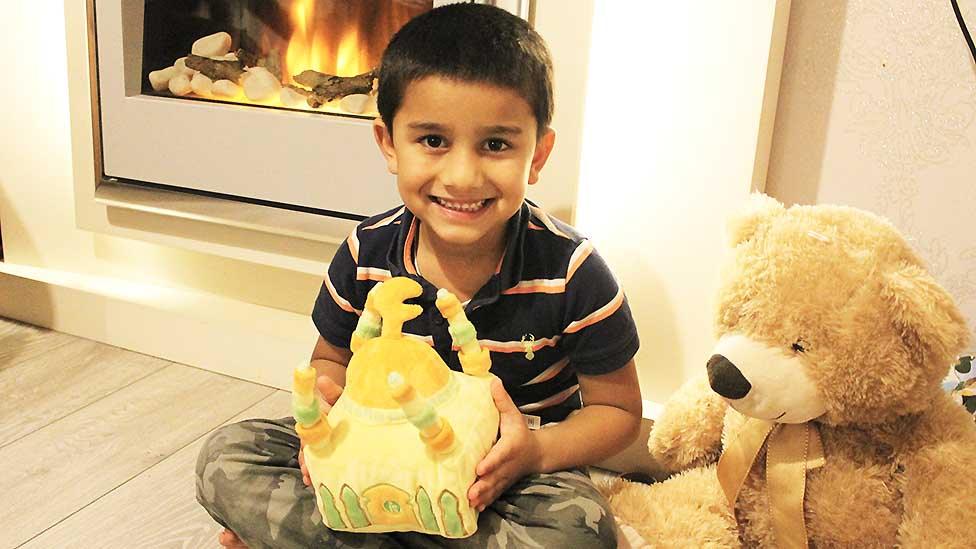
Some research suggests toys and souvenirs may serve as powerful enactments of faith
While turning divine forms into dolls appears to be taking off in the Hindu community, there are other faith toys on the market, like the characters produced by The Desi Doll Company, that aim to make learning about Islam fun for children of all backgrounds.
And though collectively it's easy to dismiss dolls and tokens as frivolous - some research suggests, external that in fact toys could serve as powerful enactments of faith.
Dr Leighanne Higgins, who specialises in consumer habits around religion at Lancaster University, says though derogatory labels like "Jesus junk" or "holy hardware" are often applied to religious souvenirs, her research reveals how at the individual level people will buy them and then bestow their own personal histories and meanings upon them.
"One devout Catholic lady I met, was very defensive of a little luminous 'Our Lady' statue she had bought on a pilgrimage. She was almost ashamed of it, but she then described how it made her feel safe and protected when she'd wake in the middle of the night and see it glowing in the dark," says Dr Higgins.
And while she's not aware of this nascent religious cuddly toy market, Dr Higgins thinks it's a brilliant way to help children understand the gentle beauty that religion can give to its followers,
"The power of the teddy bear is so symbolic, personal and important to children - to then actually imbue it with faith is a genius idea because it's a great way of being able to help children understand religion and not fear faith in some ways," she says.
To hear more on this, check out BBC Radio 4's Sunday programme.
- Published9 September 2021
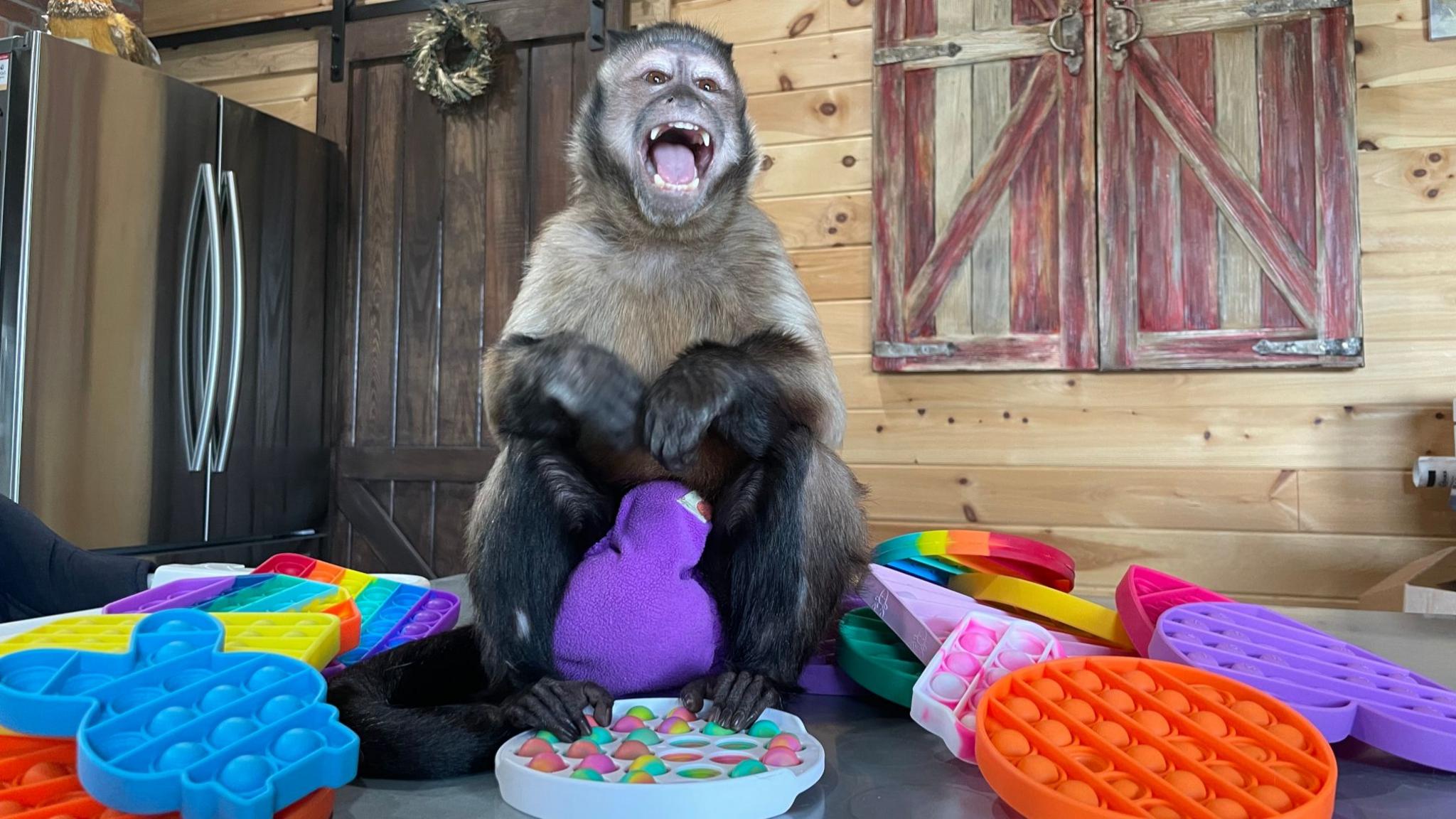
- Published13 May 2021
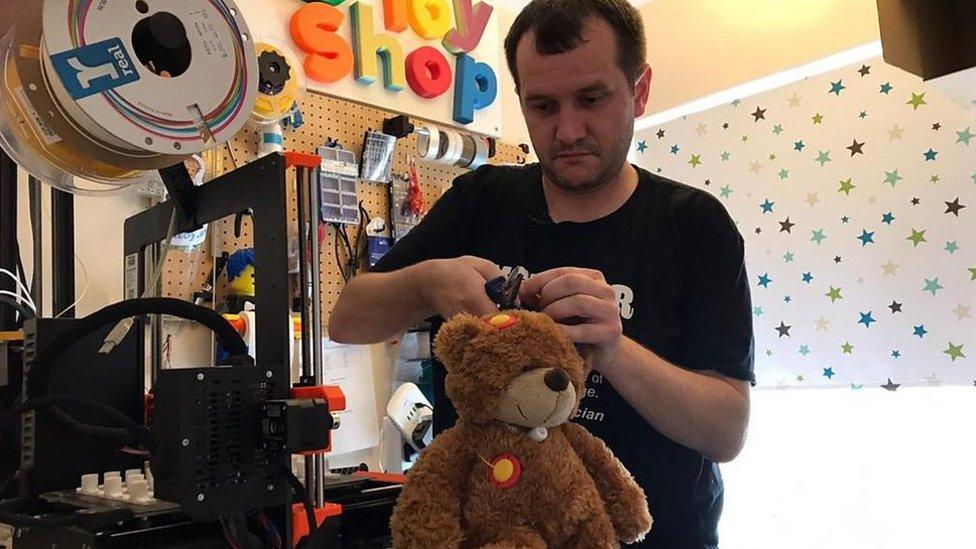
- Published20 September 2021
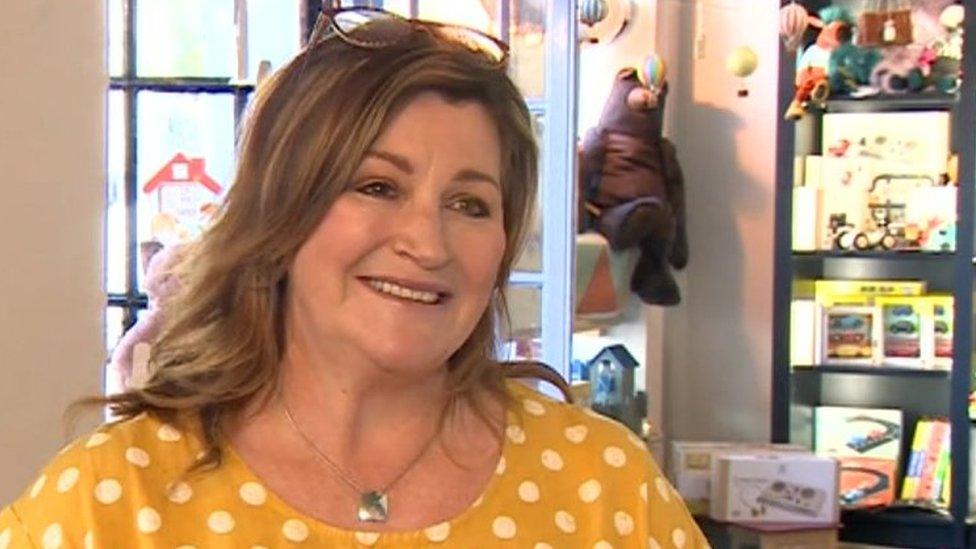
- Published4 March 2020
